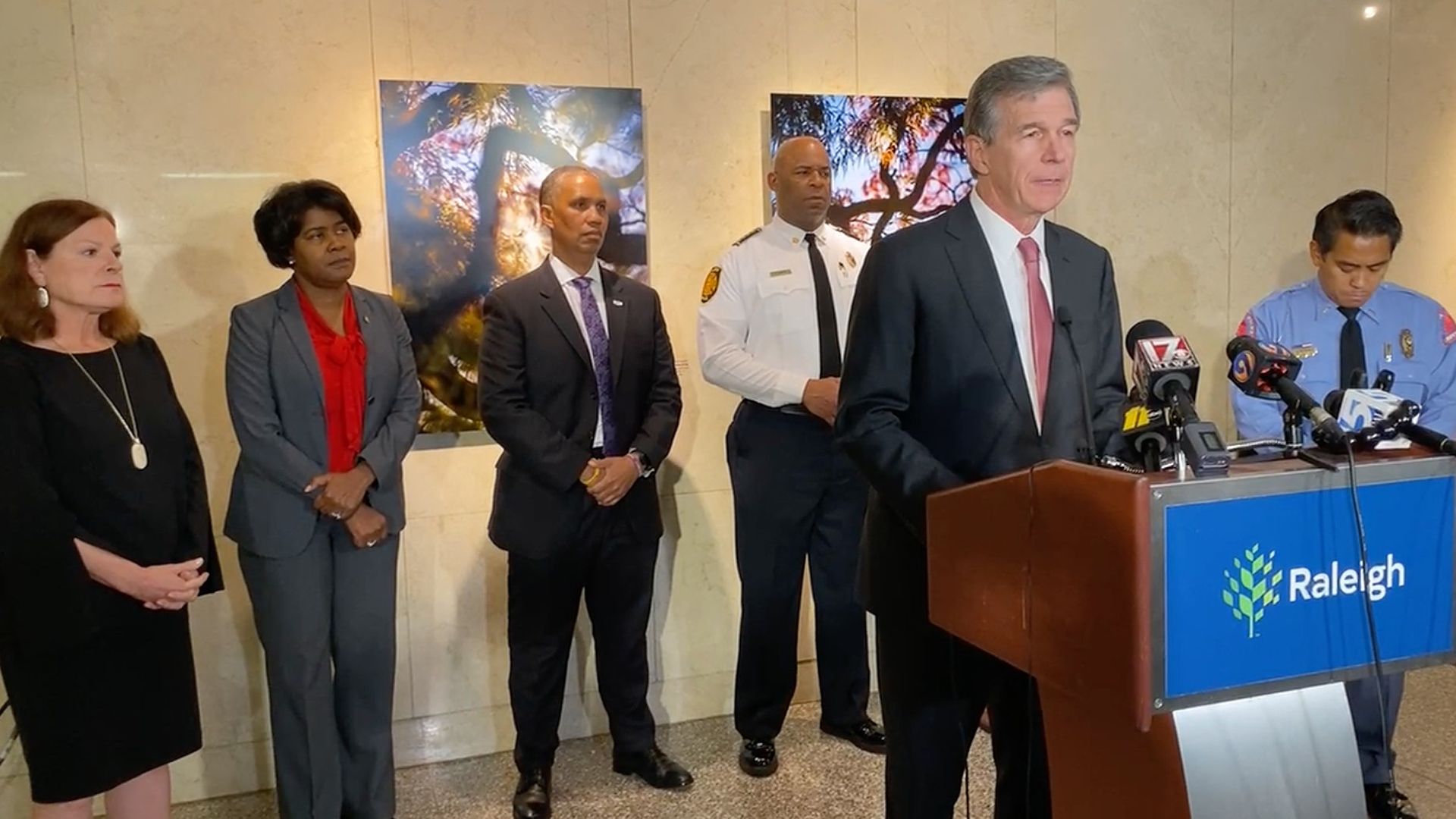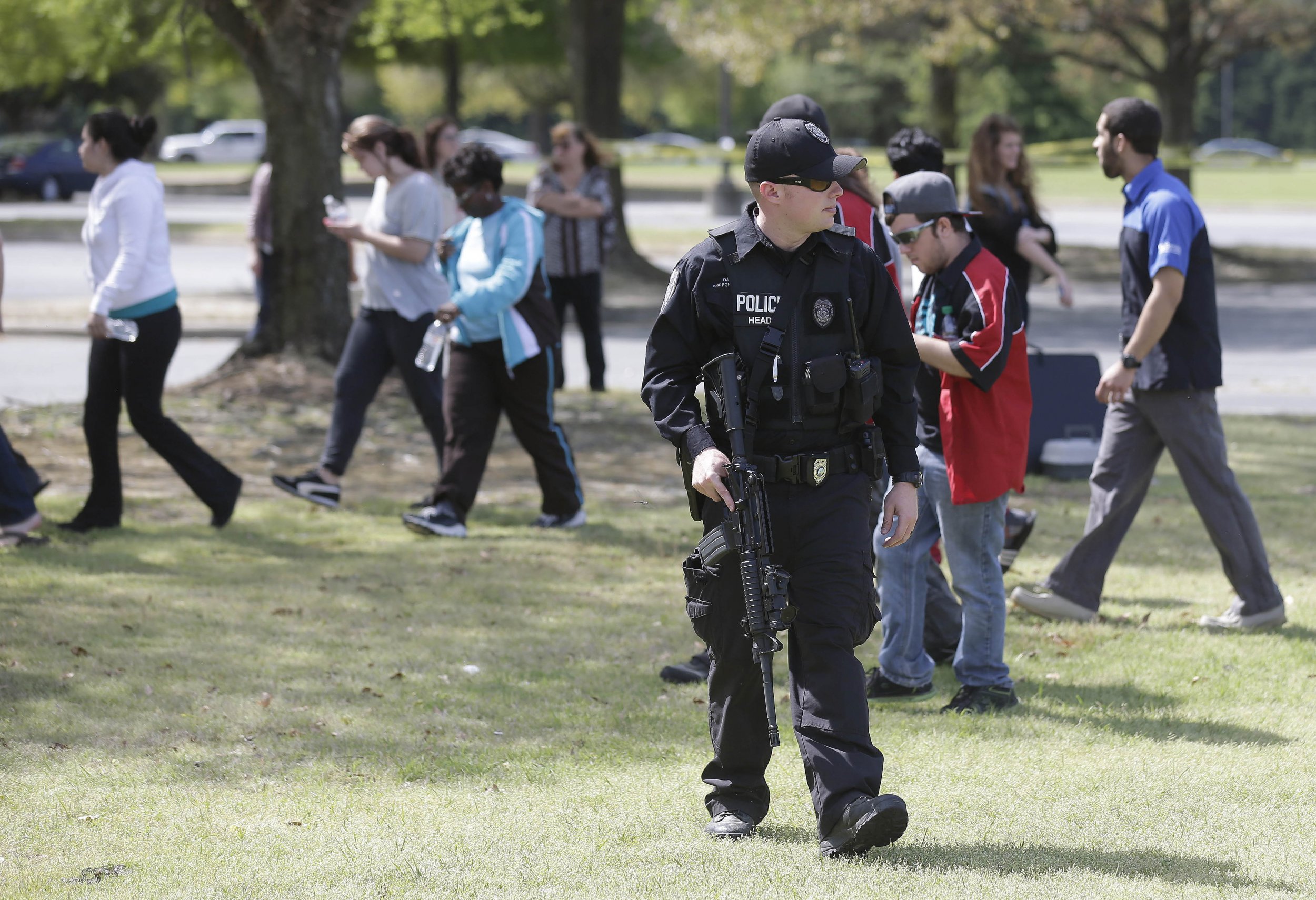North Carolina Shooting: The Untold Stories, Facts, And Community Impact
North Carolina shooting incidents have become a growing concern across the nation. In recent years, the state has witnessed a surge in gun-related violence, leaving many questioning the safety of their neighborhoods. From bustling cities to small towns, the ripple effects of these shootings are felt far and wide. But what’s really happening on the ground? Let’s dive deep into the issue and uncover the truths behind the headlines.
When we talk about North Carolina shootings, it’s not just about numbers or statistics. It’s about real people—families torn apart, communities shaken to their core, and lives changed forever. This is a story that needs to be told, not just for the sake of awareness but to spark meaningful conversations around gun violence prevention.
So, buckle up, because we’re about to take you on a journey through the history, causes, and potential solutions to this pressing issue. It’s time to move beyond the noise and focus on what truly matters—the lives affected and the changes we can make together.
- Ashley Greene The Rising Star In Hollywoods Spotlight
- Pat Mahomes The Phenomenon Redefining Modern Football
Understanding the Scope of North Carolina Shooting Incidents
North Carolina, known for its vibrant culture and natural beauty, has unfortunately been grappling with an alarming rise in shooting incidents. According to recent data, the state has seen a steady increase in gun violence over the past few years. But what does this mean for its residents?
Let’s break it down. In 2022 alone, there were over 1,500 reported shooting incidents in North Carolina. That’s a staggering number, and it’s only part of the story. Behind each statistic is a human face, a family struggling to cope, and a community trying to heal. The numbers don’t lie, and they paint a grim picture of the challenges facing this state.
Key Statistics and Trends
Here are some eye-opening stats that highlight the severity of the situation:
- Elisabeth Fritzl The Dark Tale That Shocked The World
- Nicole Richie The Iconic Style Queen You Cant Ignore
- North Carolina ranks among the top 10 states with the highest gun violence rates in the U.S.
- Urban areas like Charlotte, Raleigh, and Greensboro have reported the most incidents, but rural regions are not immune either.
- Young adults aged 18-24 are disproportionately affected, accounting for nearly 40% of all shooting victims.
These trends are alarming, and they demand immediate attention. But before we can tackle the problem, we need to understand its root causes.
Root Causes of North Carolina Shooting Incidents
Gun violence doesn’t happen in a vacuum. There are complex factors at play, ranging from socioeconomic issues to systemic challenges. Let’s explore some of the key drivers behind the rise in North Carolina shootings:
1. Economic Disparities
Poverty and unemployment are major contributors to gun violence. In many neighborhoods, lack of access to quality education and job opportunities can lead to frustration and desperation, creating a breeding ground for crime. It’s a vicious cycle that needs to be broken.
2. Mental Health Challenges
Mental health is another critical factor. Many individuals involved in shootings, both as perpetrators and victims, struggle with untreated mental health issues. The stigma surrounding mental health care in some communities only exacerbates the problem.
3. Gun Laws and Accessibility
North Carolina’s gun laws have been a topic of heated debate. While the state has implemented some measures to curb gun violence, critics argue that more needs to be done to ensure firearms don’t fall into the wrong hands. The ease of access to guns remains a significant concern.
Community Impact: The Human Side of North Carolina Shootings
Behind every statistic is a human story. The impact of North Carolina shootings goes beyond the immediate victims. Families, friends, and entire communities are left to pick up the pieces. Let’s take a closer look at how these incidents affect people on a personal level.
Stories from the Frontlines
Meet Sarah, a mother from Durham who lost her son in a drive-by shooting. “It’s like a part of me is missing,” she says. “Every day is a struggle, but I refuse to let his death be in vain. I’m fighting for change, for justice, and for a safer future for everyone.”
Then there’s Marcus, a community activist in Charlotte. He’s working tirelessly to bring awareness to the issue and provide support to those affected. “We need to come together as a community,” he emphasizes. “This isn’t just about one person or one family—it’s about all of us.”
Potential Solutions: What Can Be Done?
Fighting gun violence requires a multifaceted approach. Here are some strategies that could make a difference:
1. Strengthening Gun Laws
Advocates are pushing for stricter background checks and limits on high-capacity magazines. These measures could help reduce the number of guns available to those who pose a threat.
2. Investing in Mental Health Resources
Expanding access to mental health services is crucial. Schools, community centers, and local governments can play a role in ensuring that individuals get the help they need before it’s too late.
3. Community Engagement and Education
Empowering communities through education and outreach programs can foster a culture of peace and understanding. Programs that focus on conflict resolution and mediation can go a long way in reducing violence.
Legal Implications and Policy Changes
North Carolina lawmakers are under pressure to address the growing issue of gun violence. Recent legislative efforts have focused on enhancing penalties for illegal gun possession and providing funding for community-based initiatives. But is it enough?
Some argue that more needs to be done to close loopholes in existing laws. Others believe that education and prevention are the keys to long-term success. The debate continues, but one thing is clear: action is needed now.
Law Enforcement’s Role in Reducing Shootings
Police departments across North Carolina are stepping up their efforts to combat gun violence. From increased patrols in high-risk areas to community policing initiatives, law enforcement agencies are exploring new strategies to keep citizens safe.
However, trust between police and the communities they serve remains a challenge. Building stronger relationships and fostering open communication can help bridge this gap and lead to more effective solutions.
Public Awareness and Advocacy
Raising awareness about North Carolina shootings is essential. Grassroots organizations, social media campaigns, and partnerships with local leaders can amplify the message and mobilize support for change.
Advocacy groups like Moms Demand Action and the Coalition to Stop Gun Violence are leading the charge, pushing for policy reforms and educating the public about the dangers of gun violence. Their efforts have already made a difference, but there’s still much work to be done.
Looking Ahead: A Path to Peace
The road to reducing North Carolina shootings is long and challenging, but it’s not impossible. By addressing the root causes, implementing effective policies, and fostering community collaboration, we can create a safer future for all.
What You Can Do
Here are some ways you can contribute to the cause:
- Stay informed about the latest developments and statistics.
- Support local organizations working to combat gun violence.
- Engage in conversations with your elected officials and demand action.
Together, we can make a difference. It’s time to stand up, speak out, and work toward a world where shootings are a thing of the past.
Conclusion: The Fight Continues
In conclusion, North Carolina shootings are a pressing issue that demands our attention and action. From understanding the root causes to exploring potential solutions, every step we take brings us closer to a safer, more peaceful society.
We urge you to share this article, join the conversation, and take action in your own community. Remember, change starts with us. Let’s honor the lives lost and work tirelessly to prevent future tragedies. Together, we can make North Carolina—and the world—a safer place for everyone.
Table of Contents
- Understanding the Scope of North Carolina Shooting Incidents
- Root Causes of North Carolina Shooting Incidents
- Community Impact: The Human Side of North Carolina Shootings
- Potential Solutions: What Can Be Done?
- Legal Implications and Policy Changes
- Law Enforcement’s Role in Reducing Shootings
- Public Awareness and Advocacy
- Looking Ahead: A Path to Peace
- Conclusion: The Fight Continues
- Leslie Bibb The Alluring Journey Of A Hollywood Star
- Trolls Cast The Magical World Behind The Hilarious Voices

Teenage Suspect in Custody After Shooting in Raleigh The New York Times

Raleigh, North Carolina, shooting leaves 5 dead

Former Student Sought in North Carolina Campus Shooting Newsweek